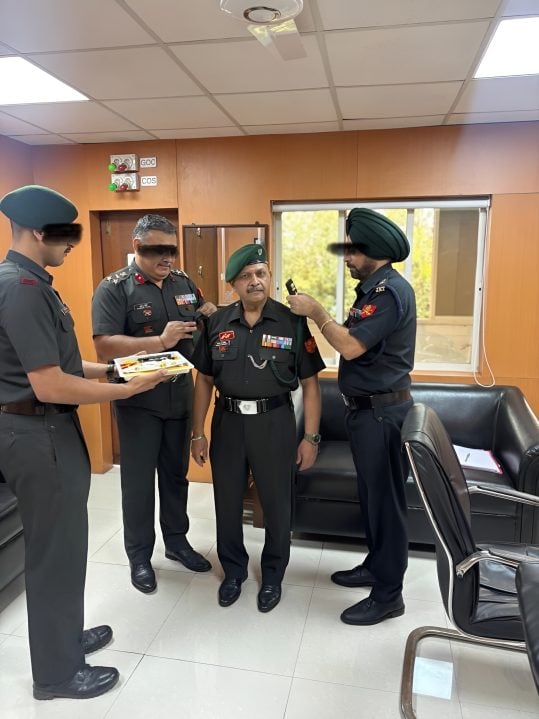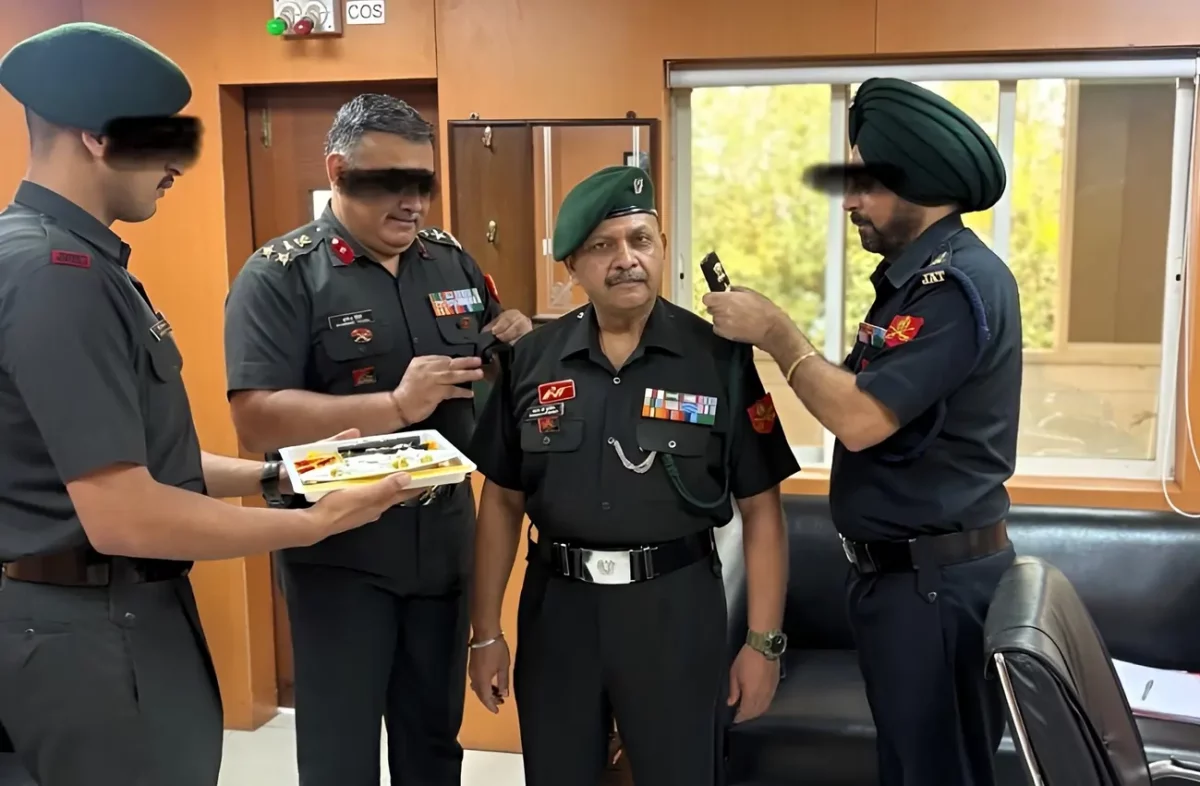In a long-awaited moment of recognition, Lt. Col. Prasad Shrikant Purohit, a decorated Indian Army officer, has been promoted to the rank of full Colonel, marking the end of a 17-year ordeal that included wrongful arrest, legal battles, and a tarnished reputation. The promotion ceremony, captured in a widely circulated image, shows Purohit receiving his new insignia amidst a small gathering of fellow officers, a testament to his resilience and the support of his peers.
Purohit’s journey to this promotion has been anything but ordinary. Arrested in 2008 by the Maharashtra Anti-Terrorism Squad (ATS) in connection with the Malegaon blast case, he was accused of supplying RDX for the bombing that killed six people and injured over 100 in a Muslim-dominated area. As the only serving Army officer to face such charges, Purohit’s case drew national attention, with allegations framing it as part of a so-called “saffron terror” narrative. However, a special National Investigation Agency (NIA) court acquitted him and six others, including BJP MP Pragya Singh Thakur, on July 31, 2025, citing a lack of cogent evidence and inconsistencies in the prosecution’s case.
The acquittal revealed that Purohit’s arrest stemmed from his covert intelligence operations, which were sanctioned by military authorities. According to Smita Mishra’s investigative book, Lt. Colonel Purohit: The Man Betrayed?, Purohit had infiltrated terror networks, a role that was misconstrued by the ATS. The book highlights how forged movement orders and a media trial exacerbated his plight, leading to a 17-year battle that upended his life and family.
Despite the acquittal, the delay in justice cost Purohit dearly. Military sources indicate that, had his career progressed without interruption, he could have risen to the rank of Major General, a position attainable after 25-30 years of service with exceptional merit. Instead, he retires in March 2026 as a Colonel, a rank he achieved only after sustained advocacy and public outcry. Observers have noted that an officer of his caliber deserved higher recognition.
The promotion has sparked mixed reactions across the country. While supporters have condemned the political motivations behind his harassment, others have called for further redress, suggesting Purohit be promoted to Brigadier with back pay and compensation for the judicial entrapment and torture he endured. Suggestions have also emerged proposing a gubernatorial role for Purohit post-retirement, reflecting his stature as a patriot.

The Indian Army and the Ministry of Defence have remained largely silent on the matter, though the case has reignited debates about the protection of military personnel from politically charged investigations. Purohit’s wife, Aparna, dubbed the “Iron Lady” by supporters, has been a pillar of strength throughout, her endurance mirroring the couple’s unyielding spirit.
As Purohit prepares for retirement, his story serves as a cautionary tale of the intersection between national security, political agendas, and military justice. With the nation saluting his service, the question remains whether this promotion is a belated honor or a partial remedy for years of betrayal.













